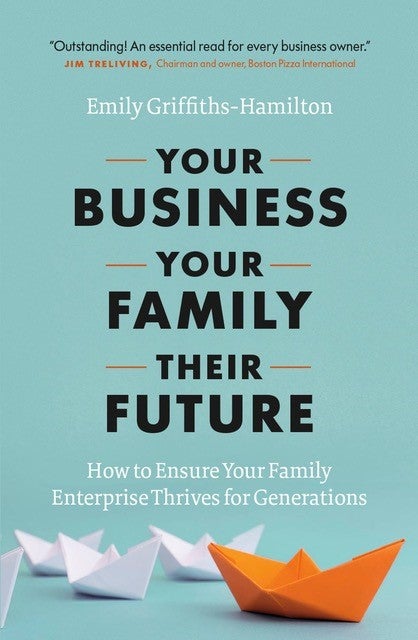
Private banks often say they focus on succession planning and engaging the next generation. But do they really have their best interests at heart? Oliver Williams looks at the real burden on the next gen.
‘The biggest wealth transfer in history’, it is often called. The exact amount of wealth expected to pass from one generation to the next varies from study to study, but there is no disputing its significance.
Suddenly, succession has become a critical service for private banks, as relationship managers rush to please the scions of fortunes and banks roll out next-gen jollies.
But do they really have the best interest of families at heart? Private Banker International looks at real issues of succession beyond the financial and finds most have nothing to do with money.
Too much too soon?
“Is there a perfect formula for when you start to educate children about inheriting?” Asks James Fleming, CEO of Sandaire, a multi family office. “The quick answer is, no, because no two families are alike.”
Families should not be so cautious about “too much too soon”, he warns, rather “too little too late”. Children who are suddenly given the reins of a family firm or inherit a windfall of wealth without knowing how to manage it can lead to succession failures.
How well do you really know your competitors?
Access the most comprehensive Company Profiles on the market, powered by GlobalData. Save hours of research. Gain competitive edge.

Thank you!
Your download email will arrive shortly
Not ready to buy yet? Download a free sample
We are confident about the unique quality of our Company Profiles. However, we want you to make the most beneficial decision for your business, so we offer a free sample that you can download by submitting the below form
By GlobalData“So obviously, you don’t sit them down nine o’clock on a Monday morning and tell them the whole story,” says Fleming. “But around the sort of teenage age group – 15 or 16 years-old – you might start to talk about how the family fortune was created.”
This is a process Sandy Loder calls “the osmoses process”, the slow leaking of information about the family fortune. His firm, AH Loder Advisors, specialises in helping family businesses and the next generation.
The best age to start the succession process is around 30, he believes. “I think they need to make their own path in their 20s. You need to get your skills badge… It’s like being in the scouts.”

Rich kid-itis
But inheriting too much too soon can be as damaging as too much too late. There are countless examples of billionaire heirs going off the rails, taking to drugs or frittering away the family fortune.
While these are extreme examples, there is no shortage of children with too much money and not enough motivation, says Loder: “They’ve had too much money, drugs and no pressures on them to get a job. There’s no way they can take over running a business.”
Often this is caused by neither too much nor too little money, but just enough to sap motivation, Paul Flynn explained to PBI in December: “What this does is demotivate them in a way. But they are happy to take the £100k or £150k and be at the beck and call of their parents”.
Lucy Birtwistle, a senior associate at Stonehage Fleming, has seen examples of this first hand. “I’ve worked with next generation family members who say ‘why go to university, what’s the point? No one’s going to be impressed with what I do, because my entrepreneurial parents have nailed life. And I’m always going to be seen as a bit inferior.’”

So what do you do when your job is overseeing the transfer of wealth or a business to a generation that lacks the motivation to manage it?
“We try to understand the motivations of family members: ‘what do you want? What’s the vision? What do you want from this?’” explains Birtwistle.
This often involves lengthy meetings with family members to try and find that purpose. “We do exercises like writing your obituary: ‘what would you like to be known for? What would you like to be saying in a speech during your 40th birthday?’”
Once a purpose has been found, a solution can be drawn up. There are several tried and tested methods to get the next generation involved.
One of these is the philanthropic route, where, “parents will use philanthropy as a way of bringing the child into the knowledge of how wealth works,” Fleming explains. Often family members will do a stint at the family foundation, or they are asked to manage the entire philanthropic spending.
Another route is to dole out a pot of money to invest. Again, this can range from a simple trading exercise to the more complex: “They may have a presentation from three young companies – three fintechs for example – and they can invest in one,” says Fleming. “How do they make that decision? And how can they follow and monitor their decision thereafter?”
Managing the current gen
Ironically, a dominating family patriarch or matriarch can often be the cause of a lacking passion in the next generation, explains Emily Griffiths-Hamilton in her recent book: Your Business Your Family Their Future: How to Ensure Your Family Enterprise Thrives for Generations.

“Some family members in positions of authority seek to micromanage, controlling and making decisions for other family members. As when holding a small bird tightly in your hand, though, you need to be careful; too much control can crush the human and intellectual potential in the upcoming generation”.
For individuals like these, the challenge for advisors is to start the succession conversation. Birtwistle recommends asking questions like: “What’s your drop-dead plan?”
In Loder’s experience, these conversations are less often hypothetical: “They’ll deal with it when they have a heart attack”, he says.
Worryingly, 67% of families surveyed by Stonehage Fleming in their ‘Four Pillars of Capital’ report think a lack of planning is the top risk to long-term family wealth.
Dealing with disputes
Inevitably disputes arise in succession planning and this can often be the hardest part of an advisors job.
Griffiths-Hamilton has seen this first hand, not only in her role as a conflict resolution coach but also having inherited a significant media business from her father.
“In my experience, breakdowns in communication are most commonly caused by family members carrying resentments and/or unresolved problems from the past into the present,” writes Griffiths-Hamilton. One case in her book describes two “sixty-plus-year-old sisters” who still hold grudges caused by a stolen boyfriend when they were teenagers.
If things get really bad, Birtwistle brings in external psychologists or therapists. However, for all other disputes it is best to speak in hypotheticals, she advises. These can range from the seemly-ludicrous, like, ‘should the healthcare budget extend to plastic surgery?’ to the mundane: ‘should the education trust cover step-children as well?’
A more extreme solution to disputes is to enroll on one of Loder’s expeditions, which are aimed at families managing succession. “I’ve taken quite a lot of next-geners to the Arctic”. Here, families learn to work together without arguing, he says: “If you’re at minus 20 you have to work as a team in order to survive”.
The Next Next Gen
Some point out that the succession of wealth or business is an age-old practise. Think of a family that has held onto their wealth for tens of generations and a host of names come to mind.
However, succession is different to what it was. The media’s obsession with money means that many children can see just how wealthy their parents really are. Company reports can be downloaded from the internet and family feuds can go viral.
Then there is social media. Images of ostentation mean “there’s quite a lot of keeping up with the Jones’s”, says Loder.
These new issues present new challenges to those tasked with managing succession. Private banks and wealth managers can no longer focus on the financial element alone. Succession is more human than before.







